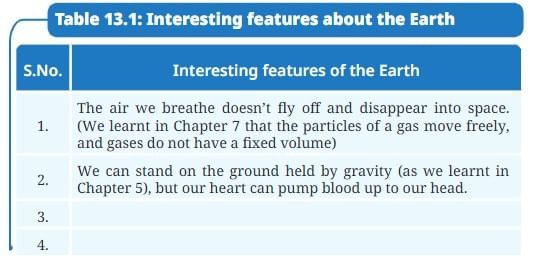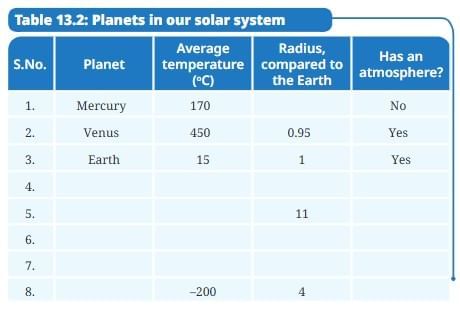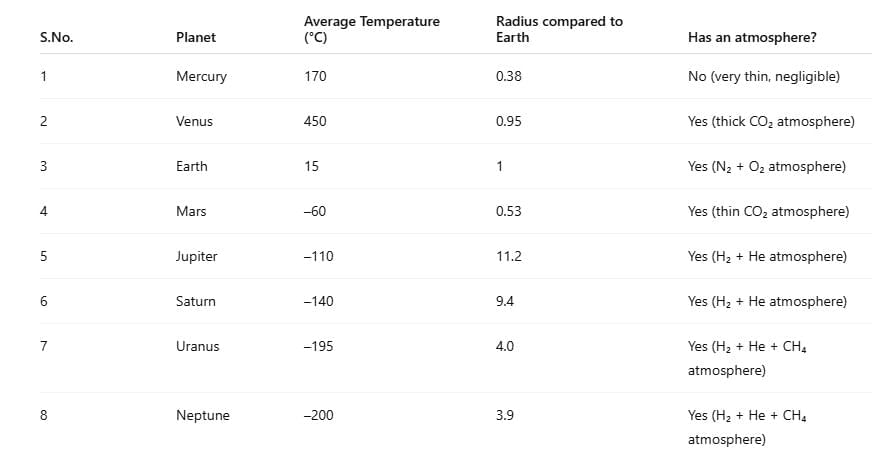NCERT Based Activity: Our Home: Earth, a Unique Life Sustaining Planet | Science Class 8 PDF Download
Activity 13.1: Let us find out
List some features of the Earth that we often take for granted, but are interesting and important to us. Write them in Table 13.1. We have filled in a few for you.
Ans:
We get sunlight and warmth from the Sun every day – which makes life possible on Earth by providing energy for plants and maintaining suitable temperature.
Earth has water in all three forms – solid (ice), liquid (water), and gas (water vapour) – which is essential for life and helps in maintaining the water cycle.
Activity 13.2: Let us find out
- Collect information about the temperature and size of the planets in the solar system, and check if they have an atmosphere.
- You may collect this information from books in your school library, trusted websites, or discuss with your teachers.
- Fill out the missing information in Table 13.2.

Ans: 
Activity 13.3: Let us find out
- Take some parts of plants like stem cutting of a money plant, the ‘eyes’ of a sprouted potato, or a piece of ginger (Fig. 13.11b).
- Plant each of them separately in moist soil (not too deep). For money plant, you can just put a cutting in a glass container which makes it easy to observe.
- Make sure they get all the conditions they need to grow—like water, air, and sunlight.
- Watch them every day and note how many days it takes for roots stem and leaves to appear. Also observe when the first new leaf appears.
Observation:
Roots may appear in 3-7 days for money plant cuttings in water, and 7-14 days for potato eyes or ginger in soil, depending on conditions.
Stems and leaves typically emerge within 10-20 days, with the first new leaf appearing around 15-25 days, varying by plant type and environment (e.g., money plant may show leaves sooner in water).
|
136 videos|530 docs|57 tests
|
FAQs on NCERT Based Activity: Our Home: Earth, a Unique Life Sustaining Planet - Science Class 8
| 1. What makes Earth a unique planet for sustaining life? |  |
| 2. How does the water cycle contribute to life on Earth? |  |
| 3. What role does the atmosphere play in supporting life on Earth? |  |
| 4. Why is biodiversity important for the health of our planet? |  |
| 5. What threats does Earth face that could impact its ability to sustain life? |  |





















